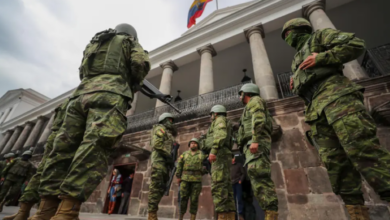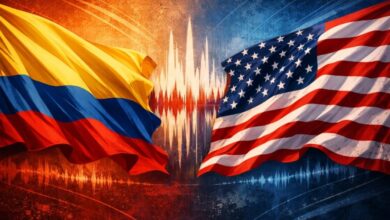Top 5 Tik Tok “celebrities” who earn the most money
Beyond having fun, these Tiktokers earn millions of dollars thanks to their content published on Tik Tok
Beyond having fun, these Tiktokers earn millions of dollars thanks to their content published on Tik Tok.

These are some of the tiktokers that generate the highest income on the platform. / Photos: TW / charlidamelio, TW / JoshRichards, TW / whoisaddison
LatinamericanPost| Juan Manuel Londoño
Listen to this article
Leer en español: Las 5 “celebridades” de Tik Tok que más dinero ganan
The United States is the main market for Tik Tok after India recently blocked the social network after an episode of armed conflict with China, therefore the closure of the app in the North American country would be a second hard blow for Tik Tok.
Now, the magazine specialized in financial issues, Forbes, has published a list of the tiktokers that earn the most money from this social network, taking into account those users that emerged and became popular from Tik Tok and their income during June 2019 and 2020, the resulting figures were obtained from celebrities, investors, agents among other people involved. Although Tik Tok is an application that became popular at the end of 2019, this has not prevented these users from achieving millions of dollars thanks to advertising and personal brands.
5. Josh Richards
Off guard pic.twitter.com/OEWFG8nST4
— Josh (@JoshRichards) June 10, 2020
The only man on the list and only 18 years old, Richards is a young Canadian who is dedicated to doing dance, singing and lip syncing content, but beyond following the content style of Tik Tok, Richards has sought monetizing his fame of 21.7 million followers through sponsorships with Reebok and HouseParty, YouTube advertising and even a singing contract with Warner Records, he has also founded a company to advise new talents called TalentX and became a shareholder of Triller, an American social network that competes against Tik Tok and where he holds the position of Creative Director. These opportunities have earned Josh Richards a total of $ 1.5 million.
4. Loren Gray
— loren gray (@iamlorengray) September 12, 2020
An 18-year-old American girl who had a stagnant start after having problems with her agents that caused her to lose sponsorship contracts, for this reason Gray decided to manage herself and now she can say that she generated 2.6 million dollars thanks to her 47 million followers and agreements with major brands such as Skechers, Hyundai and Burger King, as well as a contract with the Virgin Records label where he has published 8 songs. The Revlon makeup brand has been the most recent deal for Gray, where she is tasked with creating content for the company account and her personal account.
3. Dixie D'Amelio
hi queen pic.twitter.com/lPN984bdKt
— dixie (@dixiedamelio) September 14, 2020
This is a particular case since Dixie and her sister are in the ranking, in this case Dixie is 19 years old and like her sister is from the United States, they both moved alone to Los Angeles and have dedicated themselves to the world of Tik Tok, Dixie has more than 38 million users on this social network and has won contracts with Hollister and Morphe, she also took advantage of her popularity to start her musical career with her first single. Dixie has managed to accumulate income of 2.9 million dollars.
Read also: Everything you need to know about The Haunting of Bly Manor
2. Charli D'Amelio
repping my @theestallion merch pic.twitter.com/pOKWChbqWQ
— charli d’amelio (@charlidamelio) August 15, 2020
At only 16 years old, Charli is the younger sister, although her success seems to be greater, because in addition to the contracts with Hollister and Morphe, Charli has closed an agreement with EOS Cosmetics and Sabra, in addition to increasing her popularity with participation in the opening of the Jonas Brothers at the Barclay Center, she was also a guest on Jimmy Fallon's talk show, was with Prada at Paris Fashion Week and made it to a commercial at the Super Bowl. Charli's fame with 80 million followers on Tik Tok has earned her a total of $ 4 million.
1. Addison Rae Easterling
happiest here pic.twitter.com/vaHPIWZwgX
— addison rae (@whoisaddison) August 31, 2020
"TikTok is what got me where I am" is what this 19-year-old said to Forbes, after after reaching her fame with more than 50 million followers, she left school to go to Los Angeles and dedicate herself completely to this world. She is one of the founders of Hype House, a group of tiktokers who work to create content and promote it on Tik Tok, all in the same Los Angeles mansion according to Cosmopolitan review. Easterling has advertising contracts with American Eagle, Spotify, Reebok and Daniel Wellington, in addition to promoting her own makeup brand Item Beauty, all this has allowed her to earn up to 5 million dollars, becoming the native tiktoker with the most money.





